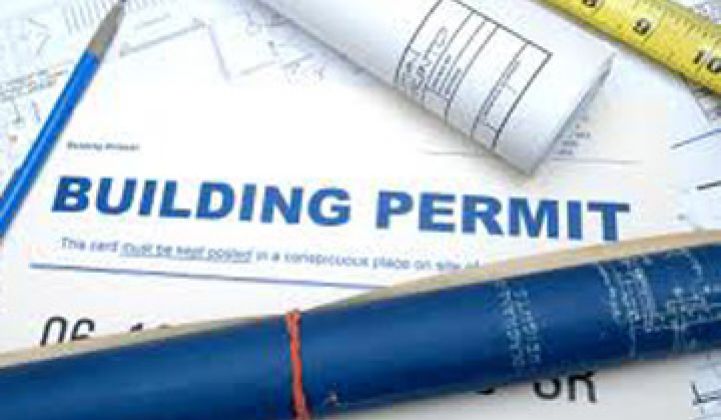In the world of solar module manufacturing, potential savings of a few pennies per watt is a big deal and calls for massive engineering efforts.
Yet, a report to the DOE from solar leasing and installation firm SunRun claims that installation costs can be reduced by 50 cents per watt simply by harmonizing the solar permitting process from town to town. The report claims that inconsistencies in permitting can cost consumers up to $2,500 on a 5-kilowatt rooftop solar system.
Ethan Sprague, Director of Government Affairs for the residential solar leasing company told me that the wasted money from permitting inefficiencies "looks like a $1 billion tax on solar over the next five years."
Sprague sees the permitting process costing ten cents per watt "in a perfect world." But in the real world, the time spent by installers in getting the building, zoning, and fire department permits, waiting for inspection, dealing with changes -- and losing customers in the process -- inflates the cost of the permitting process to $0.50 per watt.
The report, “The Impact of Local Permitting on the Cost of Solar Power,” reveals that inconsistent local solar permitting and inspection processes add an average of more than $2,500 per home installation. The report is a response to the Department of Energy’s (DOE) request for data on non-equipment solar costs.
“Every city and town has its own set of regulations and requirements for solar installations,” according to SunRun CEO Edward Fenster. The report sees inconsistencies in local permitting as one of the critical roadblocks to a sustainable, subsidy-free solar industry.
In the report, solar installers say that local permitting is the most stubborn cost they face. By comparison, countries such as Germany have simpler processes that keep solar installation costs up to 40 percent lower than in the United States. Germany reports about one million new home solar power installations in the past two years alone, while the total number of homes ever to go solar in the United States has just broken a meager 120,000.
SunRun’s report recommends the DOE lead a new Residential Solar Permitting Initiative, starting with high-volume cities that impact more than 50 percent of the solar market.
SunRun offers solar power leasing services that allow homeowners to adopt solar with low upfront costs. SolarCity and Sungevity offer similar leasing services.
SunRun claims to lead the home solar market with 10,000 customers and claims to be installing over $1 million in residential solar every day. SolarCity takes issue with that number and boasts 12,000 installations and also notes that SunRun is providing only the financing piece, not the actual installation. We'll let them fight that out amongst themselves. In any case, those numbers need to be way higher in the coming years -- and better permitting can help.
SunRun has raised financing for more than $400 million in solar systems from PG&E and U.S. Bancorp and $85 million in VC from Accel Partners, Foundation Capital and Sequoia Capital.
The report finds that streamlined local permitting could lead to an incremental investment of $186 million in California residential solar in one year, create an additional 1,000 jobs, and make solar affordable for 17 percent more California homes.
Organizations and efforts such as Vote Solar, SolarTech and Solar ABCs are also addressing the soft costs of permitting and interconnection inefficiencies.
Sprague said that since solar is new, permitting entities are subjecting 100 percent of system applications to a high degree of scrutiny, when only a few need to be looked at. He said, "It should be more like installing an appliance than re-wiring a house."
According to Sprague, "What gets lost in all this is that there is really no reason that we can't do this. We think the state should provide an online tool and it's just a matter of political will." He adds, "We need to get the message out there -- it should be the same permitting system across California."



